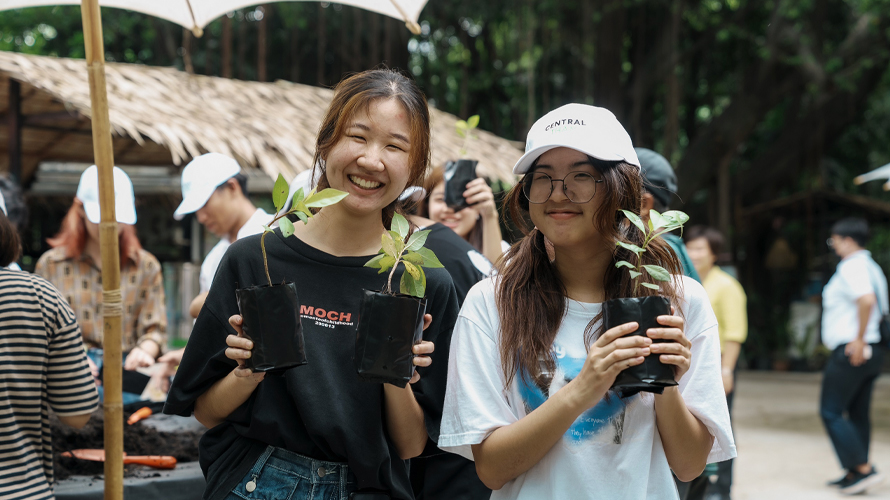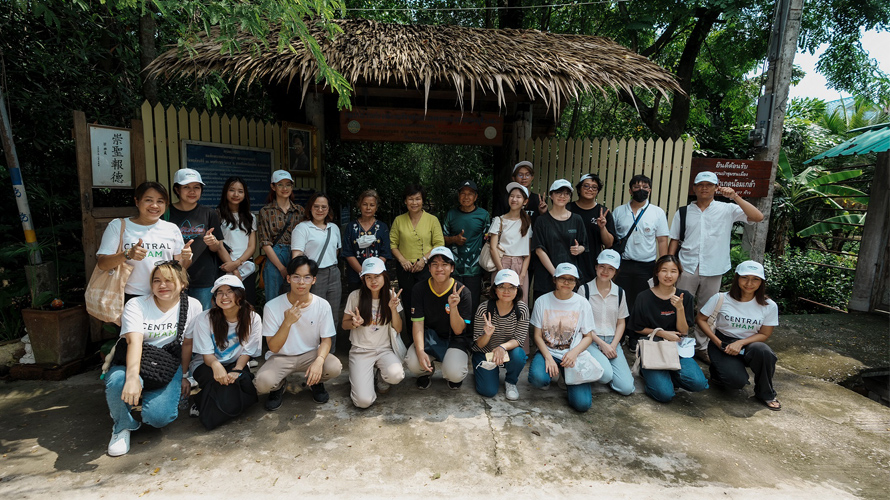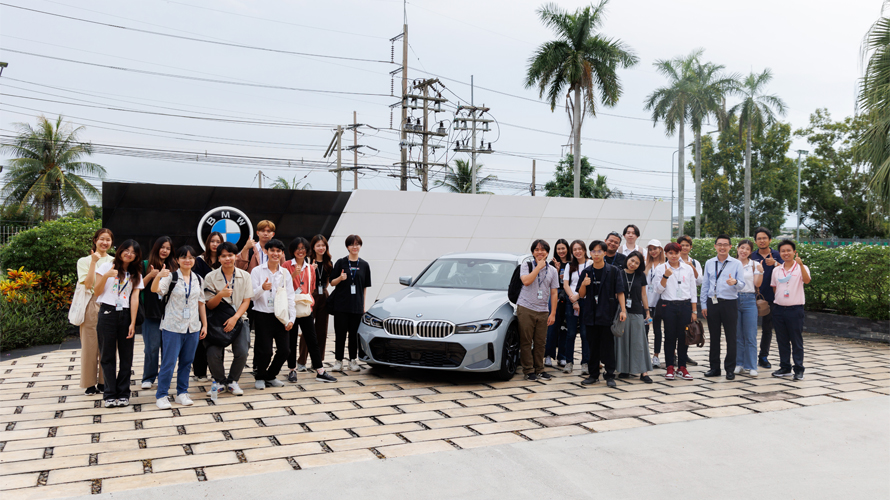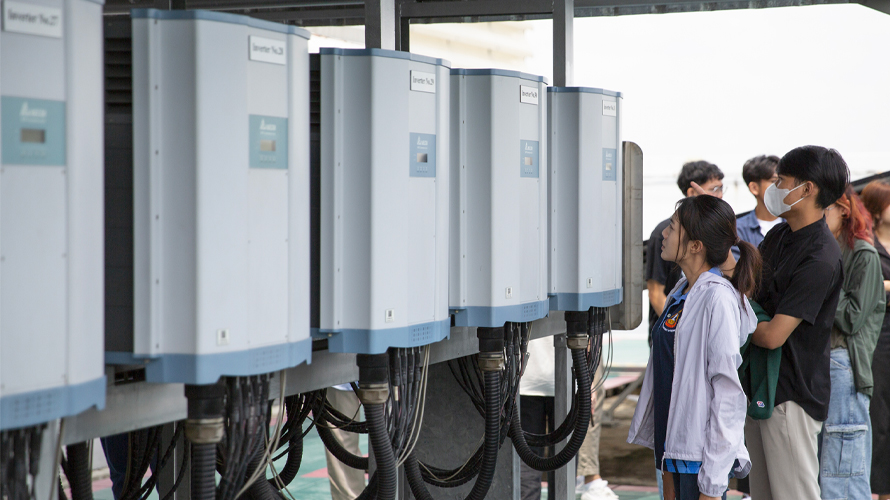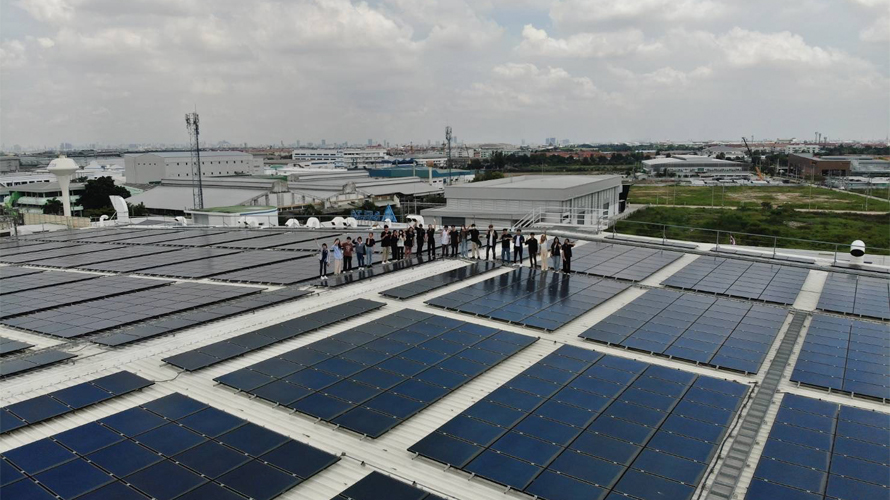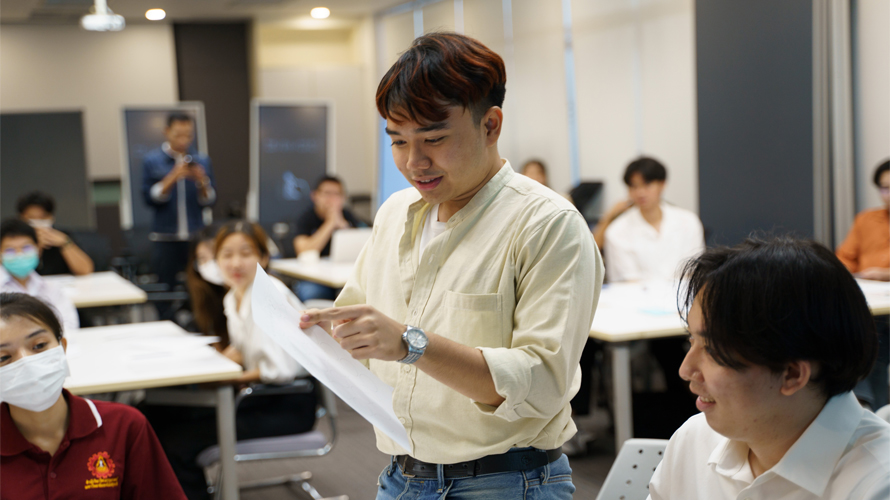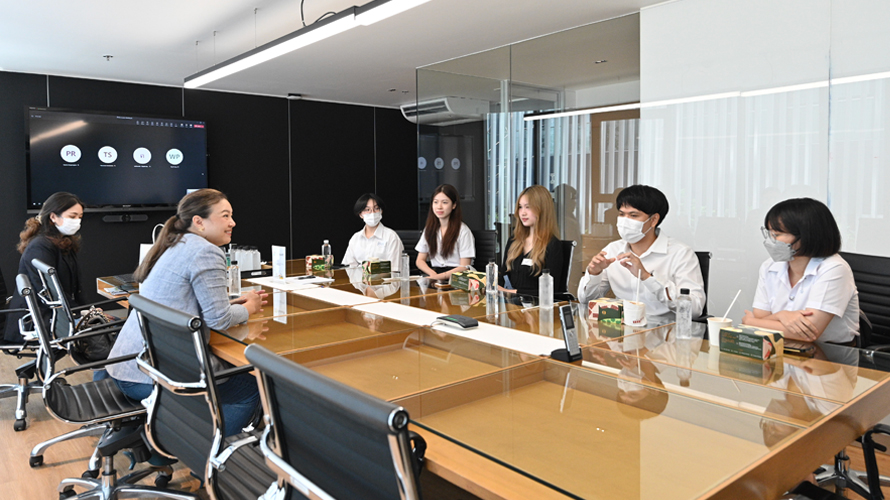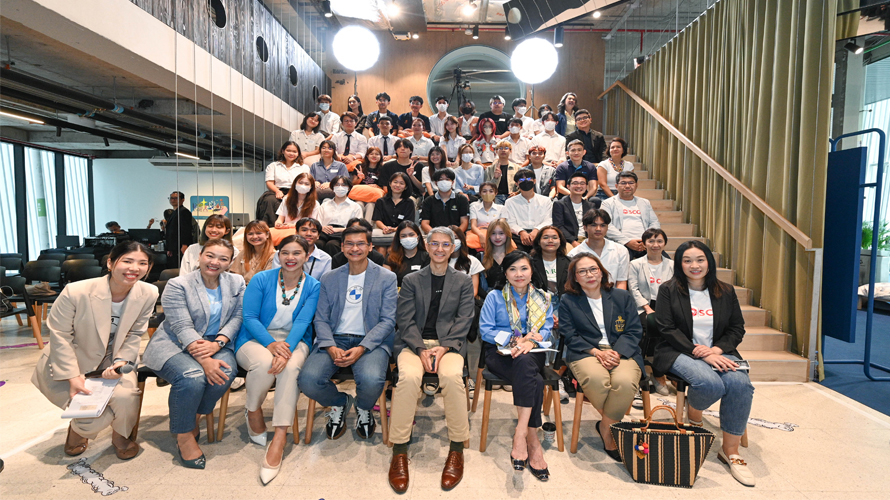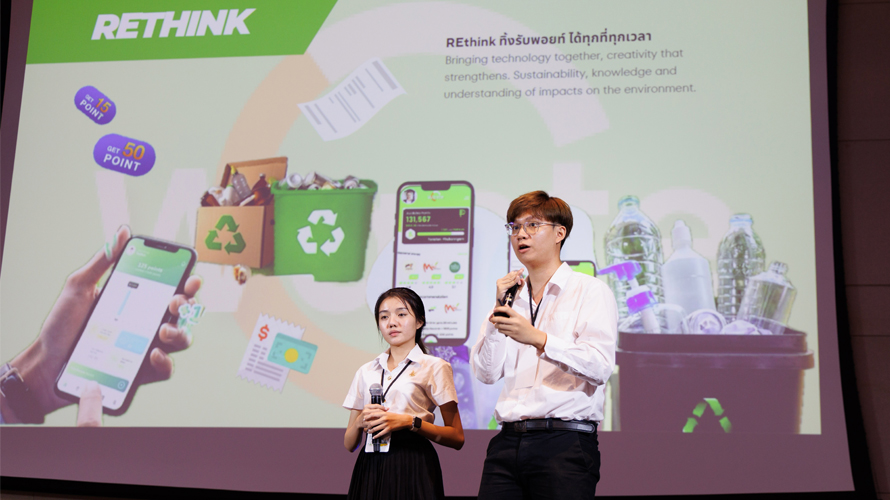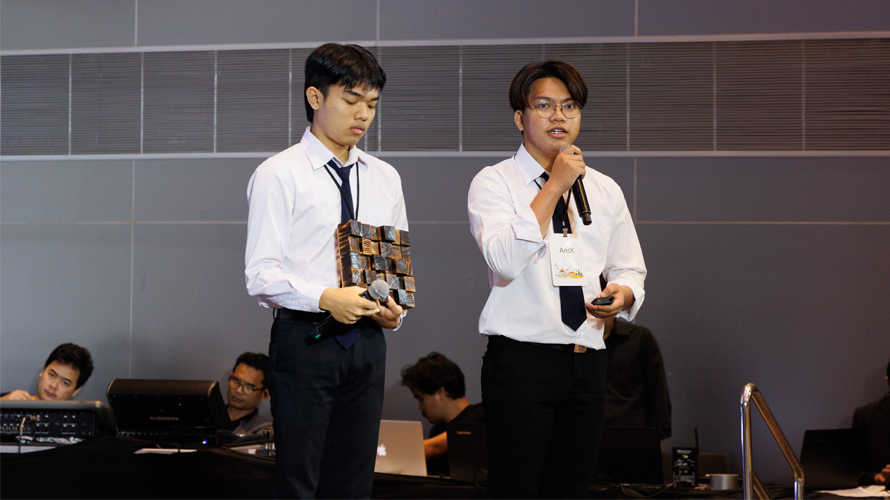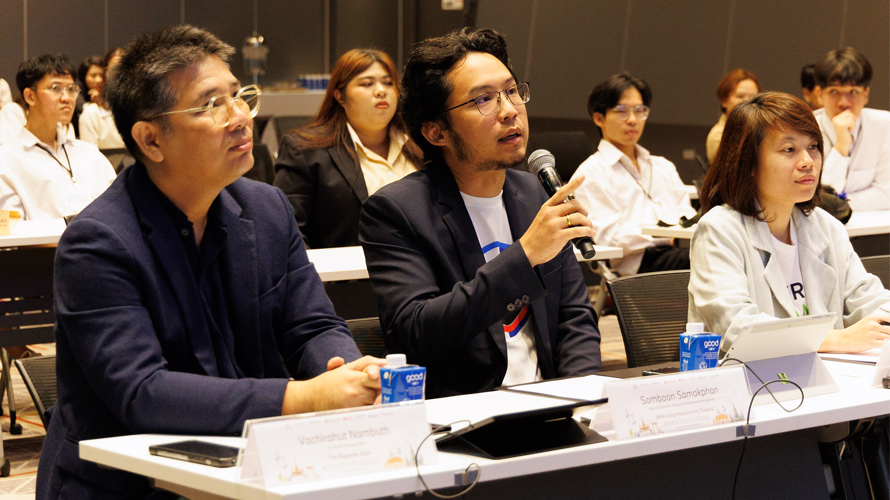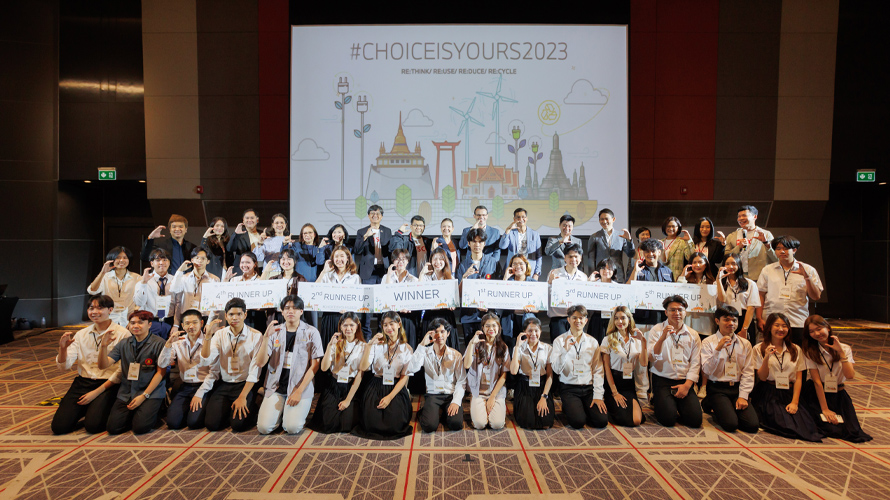Sustainability Concept Competition CHOICEISYOURS 2024.
The CHOICEISYOURS program was initiated by BMW Group Thailand to support the development of young people's ideas on sustainable environmental conservation. Its main goal is to strive to keep the increase in the global average temperature below 1.5 degrees Celsius, in accordance with the Paris Agreement. The program promotes sustainability concepts through the development of practical projects for daily life. It was first launched in 2022 in collaboration with three leading organizations: the Chaipattana Foundation, Microsoft Thailand, and SCG. The aim is to encourage and empower Thai undergraduate students to showcase their potential in designing sustainability concepts that will have a positive impact on the environment and society in the CHOICEISYOURS project.
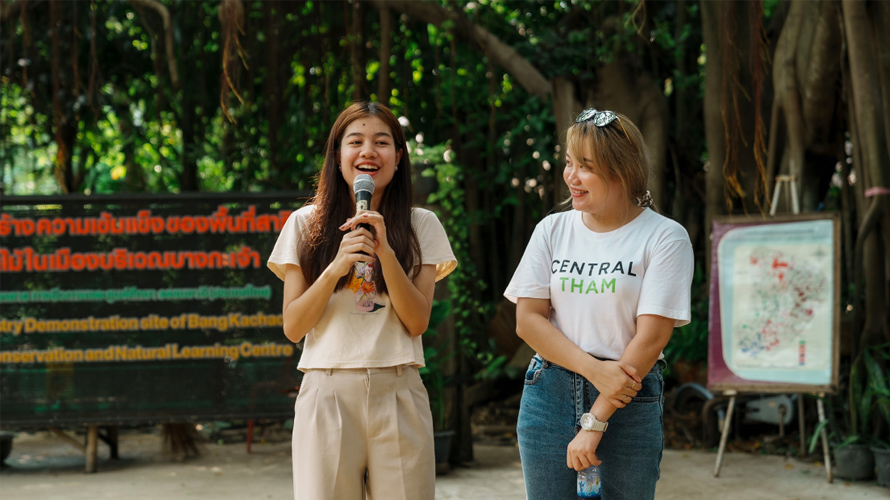
In 2024, the CHOICEISYOURS program continues its efforts with a total of seven partner organizations: BMW Group Thailand, the Chaipattana Foundation, Central Group, Microsoft Thailand, SCG, Noble Development, and Bangchak Corporation. The program is open for team applications from undergraduate students of any faculty or year. The main competition topic is the Circular Economy, which includes four key concepts: REduce, REuse, REthink, and REcycle. Experts from the partner organizations will provide mentorship to the participants, along with knowledge-sharing and skill-development activities throughout the program.
During the program, participating teams will join workshops and consult with experts in various fields. They will also go on field trips to factories, operational sites, and model sustainable communities organized by BMW Group Thailand and its partners. Participants are expected to use the knowledge gained from these activities to enhance their own projects, demonstrating their ability to apply and test Circular Economy concepts. In the final round, teams will present their projects to a panel of judges. The highest-scoring team in each category will have the opportunity to intern with the relevant partner organization. Additionally, they will receive a certificate of participation and have their work showcased to the media and interested parties in various activities.

Competition Topics for 2024
Those interested in joining the CHOICEISYOURS program in 2024 can select from 6 competition challenges provided by the partner organizations, all under the main concept of the Circular Economy. The competition and judging will be divided into six groups, each corresponding to a challenge from a partner organization. The winners of each group will have the opportunity to intern with the organization that provided their challenge. The details are as follows:
Problem 1
BMW Group Thailand

Problems to solve
The Parts Distribution Centre of BMW Group Thailand stores and distributes BMW, MINI, and BMW Motorrad parts to dealers nationwide for vehicle maintenance every day. These parts include brake pads, air filters, engine oil, etc. Each part is packed in cardboard boxes of various sizes. Over the course of one month, approximately 1,000 kilograms of cardboard boxes are sent by BMW to suppliers for disposal.
Competition Challenges
Given the volume of cardboard boxes that the BMW Parts Distribution Centre needs to dispose of each month, undergraduate students are invited to propose waste management ideas using the Circular Economy concepts of Rethink/Reuse/Reduce/Recycle. The ideas can range from reducing the use of cardboard packaging from the start (Rethink/Reduce) to reusing or recycling the used cardboard boxes after use (Reuse/Recycle). The proposed approach must be able to generate a value of more than 10 baht per kilogram of cardboard waste.
Problem 2
Noble Development Public Company Limited

Problems to solve
The construction of buildings in the real estate business generates a significant amount of construction waste, impacting the environment. This waste includes debris from ongoing construction projects and waste from the demolition of sales galleries. The company's responsibility is to manage this construction waste efficiently and in a way that benefits society.
Competition Challenges
Students choosing this challenge must propose innovative methods for managing construction waste in the Ari and the Sukhumvit construction sites. The proposed idea must show benefits to the community in terms of living conditions, health, and income generation. Sustainable environmental and social management practices for the organization should be included in the proposed idea, such as recycling construction materials for future projects.
Examples of common construction waste in the project include:
- Lightweight concrete debris
- Nail debris
- Formwork + pallets + partition wood debris
- PVC pipe debris
- Ceiling debris
- Cement column debris
- Used saw blades
- Steel bar debris, steel box debris
- Nuts + rings
- Air conditioner pipe insulation
Problem 3
Bangchak Corporation Public Company Limited

Problems to solve
Bangchak Corporation Public Company Limited is implementing the “Fry to Fly” campaign to promote the collection of used cooking oil for the production of Sustainable Aviation Fuel (SAF) to promote the Circular Economy and encourage participation from all sectors. The project begins by collecting used cooking oil from business partners such as food and bakery businesses, industrial factories, markets, etc. Bangchak Corporation aims to develop a business model for collecting used cooking oil from SMEs/households/communities to promote environment protection and economic development and connect it with the "Fry to Fly" project. The company also advocates for the proper use of vegetable oil and the correct management of used oil.
Competition Challenges
Students choosing this competition challenge must propose a business model for the collection of used cooking oil from SMEs/households/communities to be delivered to Bangchak for the production of Sustainable Aviation Fuel.
Problem 4
Chaipattana Foundation and Central Group

Problems to solve
The Chaipattana Foundation aims to re-design/rebrand its agricultural service center located on Khlong 11 Road, Bueng Thonglang Subdistrict, Lam Luk Ka District, Pathum Thani Province. The center currently serves as an agricultural learning center following the principles of the Royal Initiatives, focusing on new theories and integrated agriculture. It also sells organic fruits and vegetables that meet GAP (Good Agricultural Practices) standards. The project will be transformed into an agritourism center, integrating agricultural knowledge based on the Royal Initiatives. Services will include food and beverage offerings for health, as well as the sale of vegetable, fruit, and ornamental plant seedlings to be more modern and appealing.
Competition Challenges
Present environmentally friendly packaging that incorporates the concepts of Rethink/Reuse/Reduce/Recycle for use in food containers, plant pots, or reusable items to reduce waste and add value to the products. These designs should be modern and appealing, suitable for display and sale at Good Goods stores, particularly the branch in CentralWorld.
Design signage related to vegetables and fruits to create a clear and distinctive identity for the project, promoting environmental conservation and raising awareness about reducing future waste.
Additional Information/Pictures

Problem 5
The Siam Cement Public Company Limited

Problems to solve
The increasing severity and continuous occurrence of environmental problems, coupled with limited resources and improper waste management, have led to a climate crisis. SCG focuses on and emphasizes the Circular Economy, which is one of the key approaches used to reduce the use of new natural resources and increase the value of unused materials by reintroducing them as production inputs.
Competition Challenges
Undergraduate students must apply the principles of Circular Economy, specifically the Regenerative concept which promotes a holistic approach to the co-creation of positive impact in the ecosystem and propose ideas for using materials that have been used or leftover (Waste) as substitutes for "natural raw materials" in the production of construction products or product packaging.
Additional Information/Pictures
Examples of materials that have been used or are waste that can be used as substitutes for natural raw materials in production include:
- Using recycled glass bottles to replace natural sand in producing thermal insulation
- Using soil scraps and ceramic scraps to replace clay in producing floor tiles
- Using fly ashes and roof tile scraps to replace limestone in producing concrete roofs
- Using clay sludge from tile production to produce coffee cups and ceramic molding products for the community at Dan Kwian
- Using clay sludge from the production of toiletries as raw materials for producing ceramic bowls
Problem 6
Microsoft Thailand

Problems to solve
Continuous and increasingly severe environmental problems, especially global warming, require solutions that go beyond traditional approaches. The impacts of pollution on land, water, and air are clearly visible. Microsoft recognizes the need to promote the Circular Economy, which is a key approach to reduce resource use, maximize value creation, and efficiently manage waste by circulating resources and waste back into businesses.
Competition Challenges
Apply Generative AI or advanced AI technologies capable of deep learning from existing datasets and utilize that knowledge to generate new desired outcomes. Students should leverage Generative AI technology to assist in resource reduction or efficient waste management, resulting in quicker, easier, and more effective positive outcomes, thereby helping to expand the concept of the circular economy into a more widely recognized notion.
Additional Information/Pictures
Integrating technology could take the form of increasing productivity or implementing process automation to achieve a widespread Circular Economy impact.
Definition
Circular Economy refers to the concept of circulating resources in the value chain and improving resource management efficiency to return resources to circulation within the system through appropriate processes. This is done to maintain the value of resources for maximum benefit and to minimize the use of new resources. For the CHOICEISYOURS program, applicants must demonstrate the application of Circular Economy concepts and their ability to create sustainable benefits in ideas, behaviors, or processes, focusing on 4 main principles:
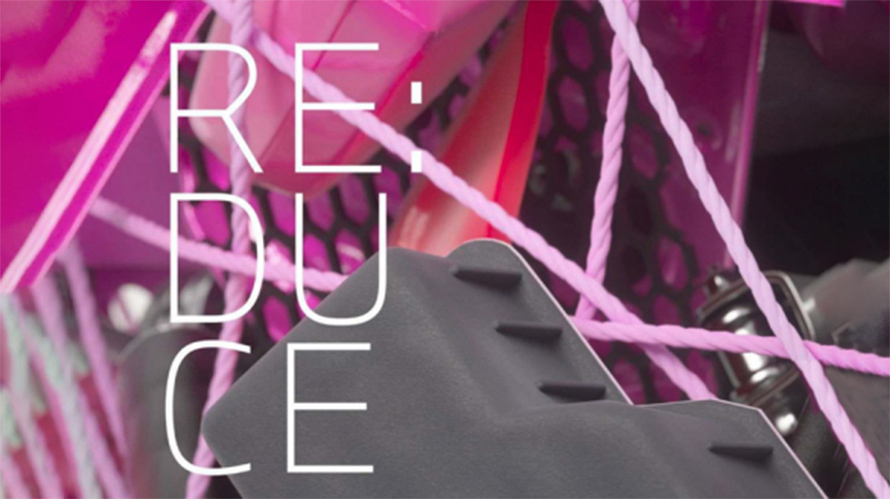
Changing behaviors with a focus on the idea of "reduce to increase," whether it's reducing the use of materials or related resources, or creating changes that can reduce waste and pollution, to move towards sustainable natural resource conservation. For example, the concept of waste disposal without harming the environment (zero-waste-to-landfill) and carbon neutrality.
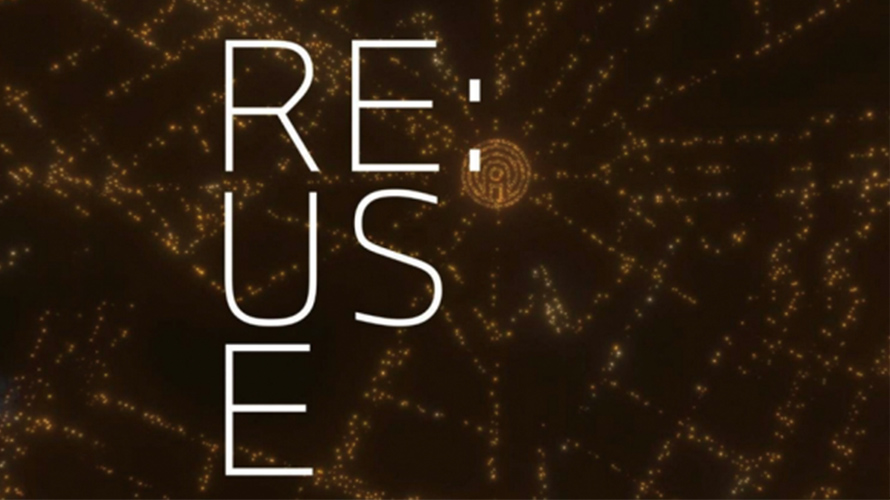
Reusing existing resources to create the highest value and benefits to maintain the most efficient resource conservation. For example, extending the life cycle of products and appliances through reusing or redesigning and using local resources to create new designs and uses while retaining the original value of the resource for maximum benefit.
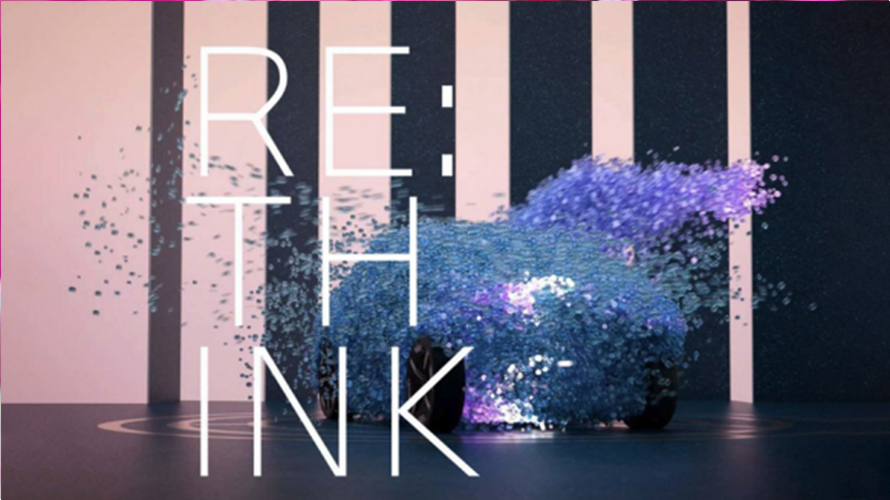
Mixing, changing, or creating new ideas with technology to enhance sustainability, create knowledge, and understanding of environmental impacts, and drive change, whether at the individual, organizational, or societal level.
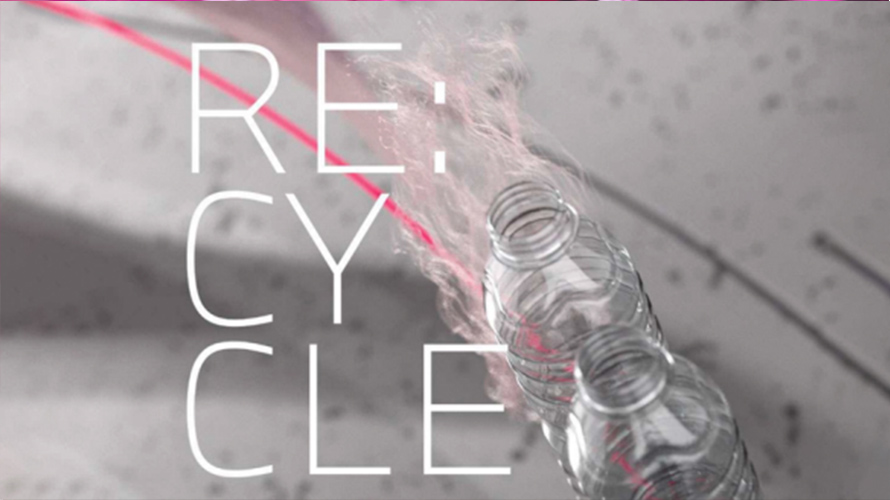
Processing used resources through a recycling process to reuse them. The key difference from reuse is that recycling manages waste or used materials that are about to become waste, turning them into new materials or products that may change their purpose in use to create new value for the resource and create a sustainable resource cycle.
Applicant Qualifications & Entry Requirements.
01. Each team must consist of 2 members and does not need to come from the same educational institution.
02. Applicants must be undergraduate students in Thailand, and must provide a copy of their student ID issued by their educational institution as proof of enrollment. International students, exchange students, and interns are also eligible, but must be able to participate in the final round in person and be responsible for their travel expenses until the end of the competition.
03. No nationality restriction, but applicants must be between 18 and 26 years old on the closing date of the application.
04. Applicants must not be directly related (siblings, children, etc.) to the judging committee or organizing committee members.

- Fill out the application form
- Present the project idea according to the selected topic, specifying project details, objectives, problems to be solved, solution approaches, experimental plans, and expected outcomes in summary form, not exceeding 200 words.
- Submit a video introducing the team and presenting the project idea, along with a brief experimental plan. Upload the video to YouTube and provide the link in the application form. The video should not exceed 2 minutes and can be in Thai or English.
- The judging committee may request to view a copy of the student ID card or confirmation from the affiliated educational institution from the participants throughout the competition.
Activities During Competition.
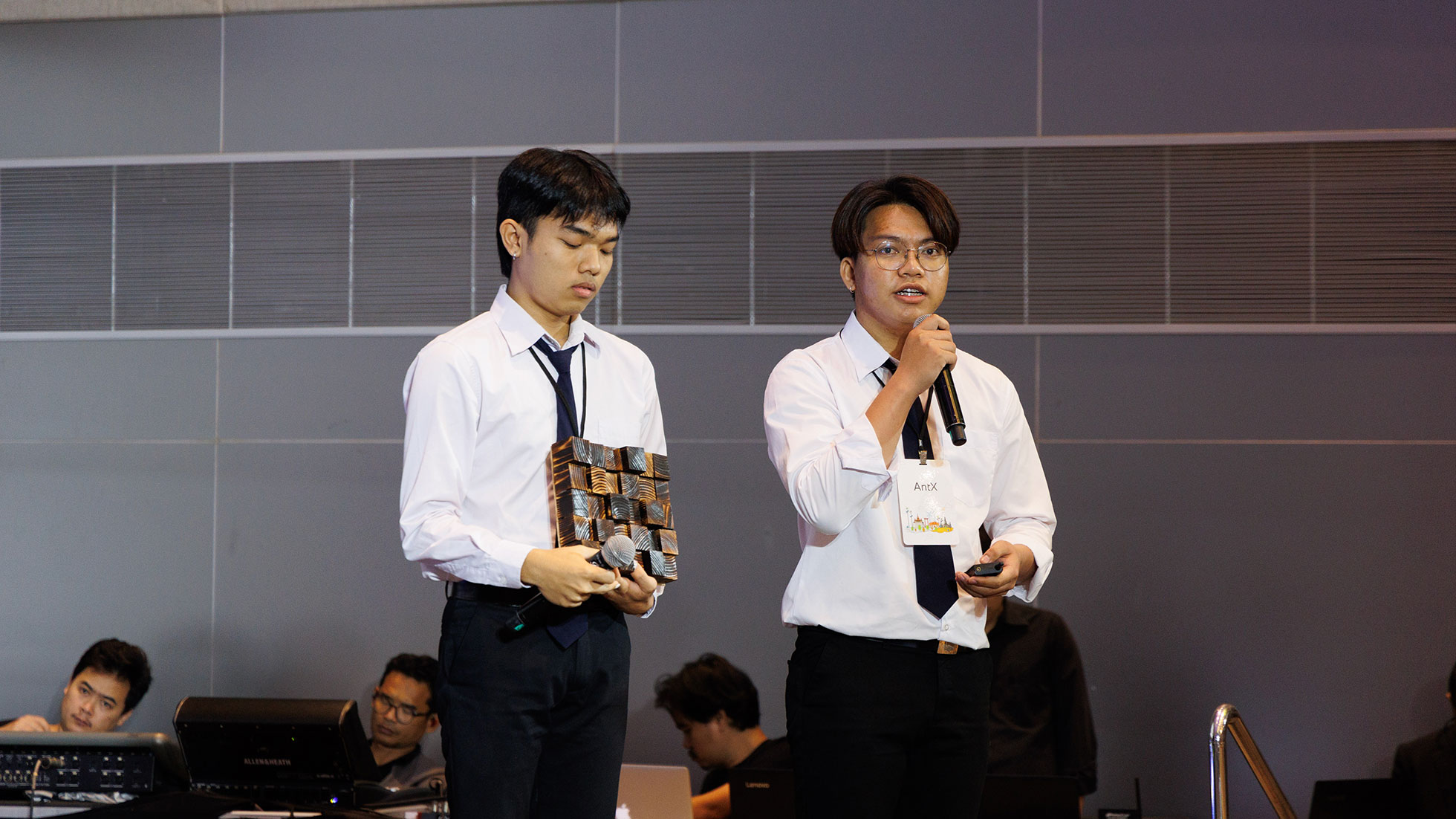
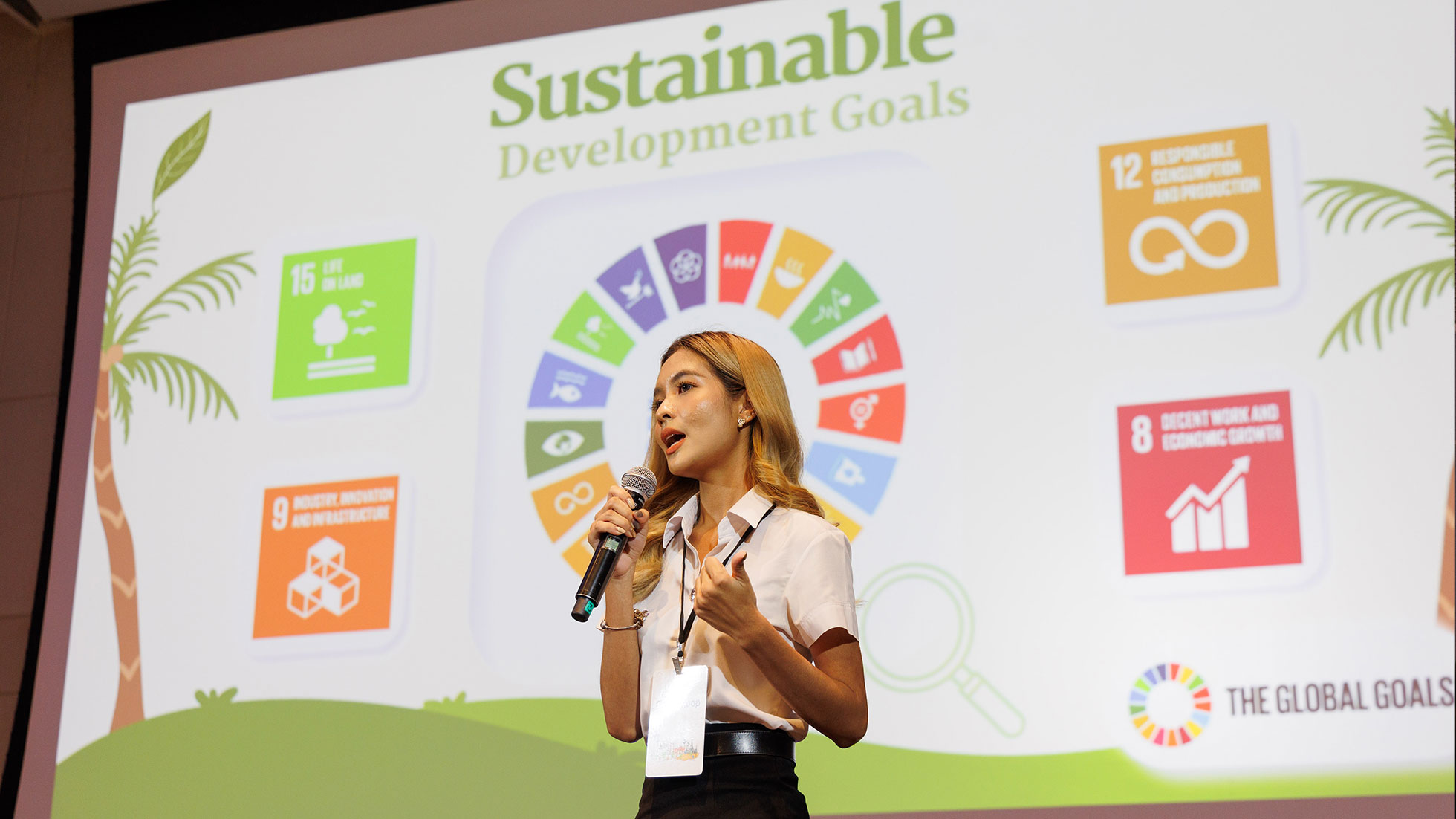
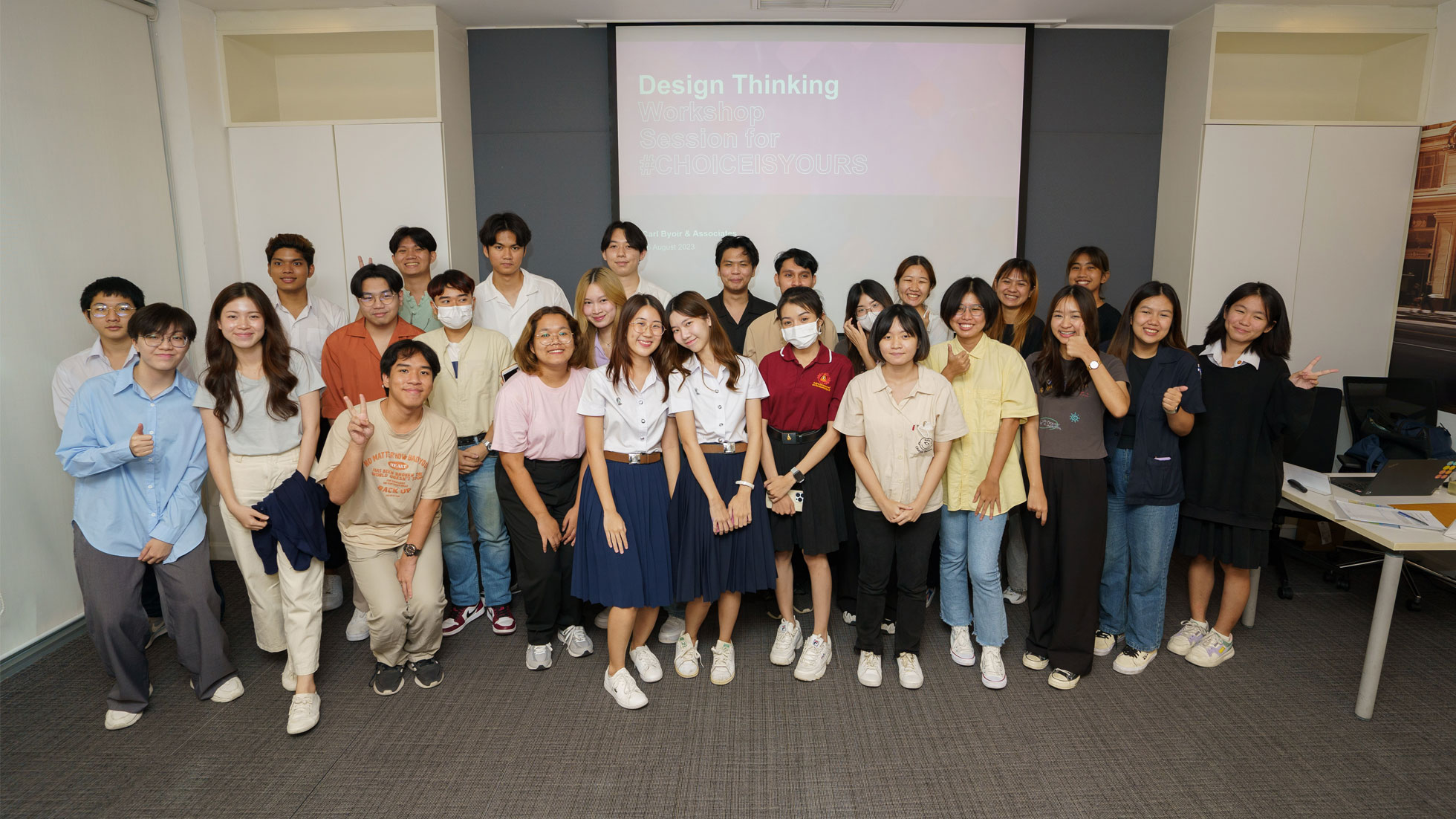
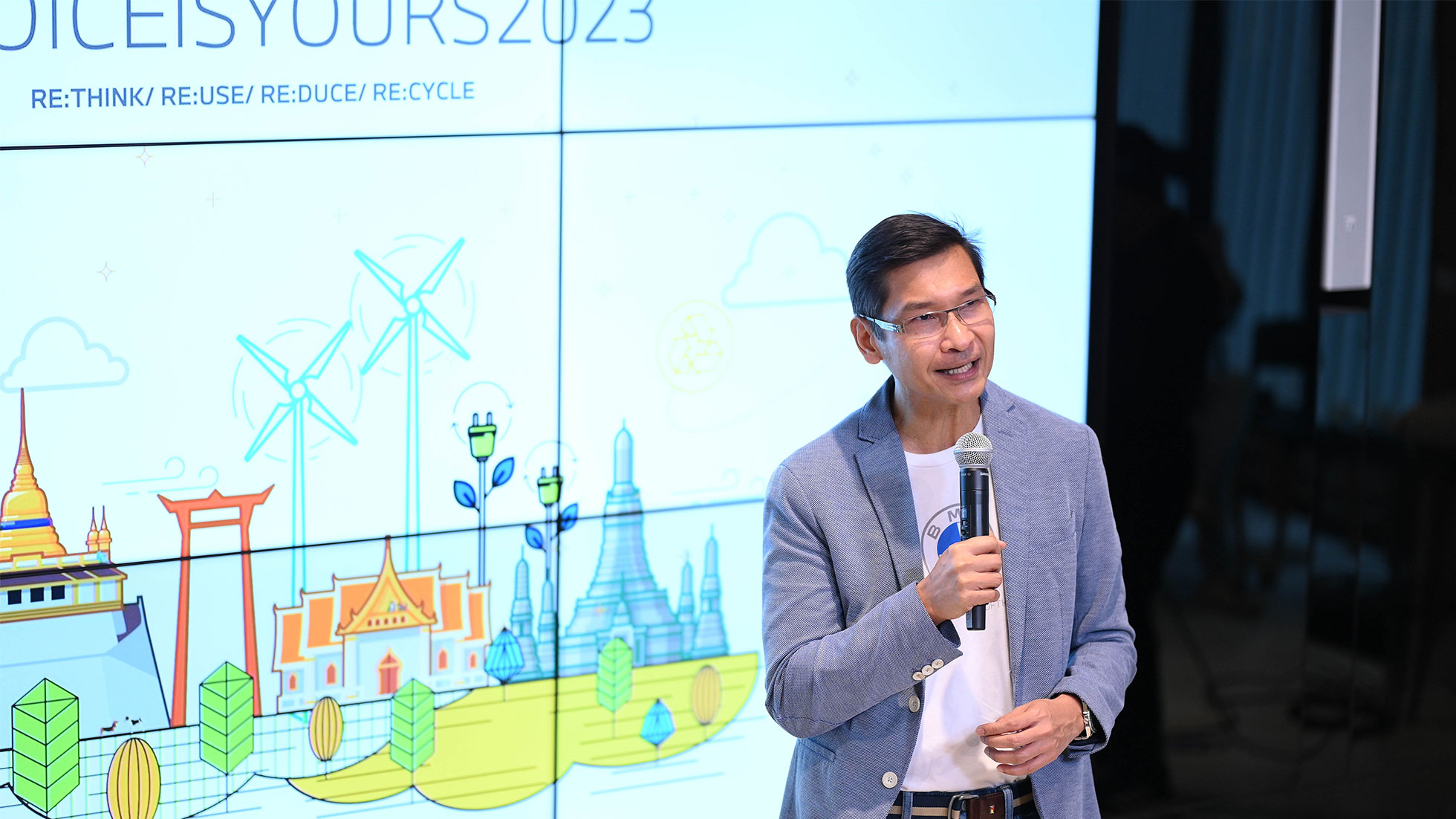
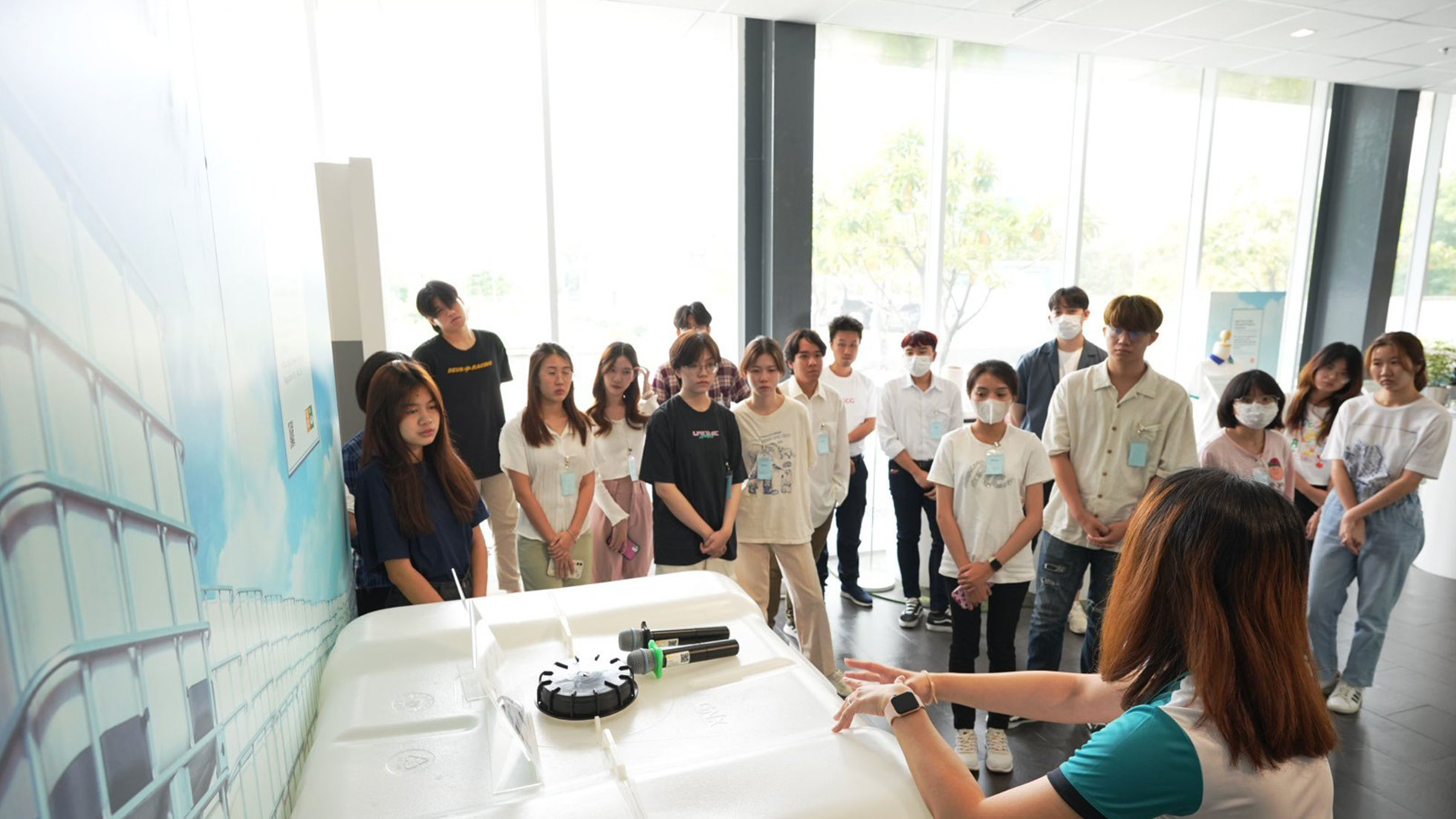
Mentoring Session After the selection of the 60 qualified teams, mentors from each organization will be assigned to provide guidance and advice to the participants throughout the competition. Each competition challenge will include 10 teams, and regular appointments of mentorship from each organization will be scheduled for continuous support during the competition.
- Site Visit Field trip activities will be organized to learn about the implementation of sustainable concepts in various organizations or exemplary communities. For example, studying waste management at the BMW Group Manufacturing plant in Thailand, visiting the automotive supply chain, and learning about the circular economy concept in a prototype community under the support of SCG.
- Skill Enhancing Activities such as training sessions on topics such as Sustainable Development Goals (SDGs), Design Thinking workshops, and technology training with Microsoft will be conducted to enhance various skills.
Competition Rounds.
The competition will consist of 3 rounds:
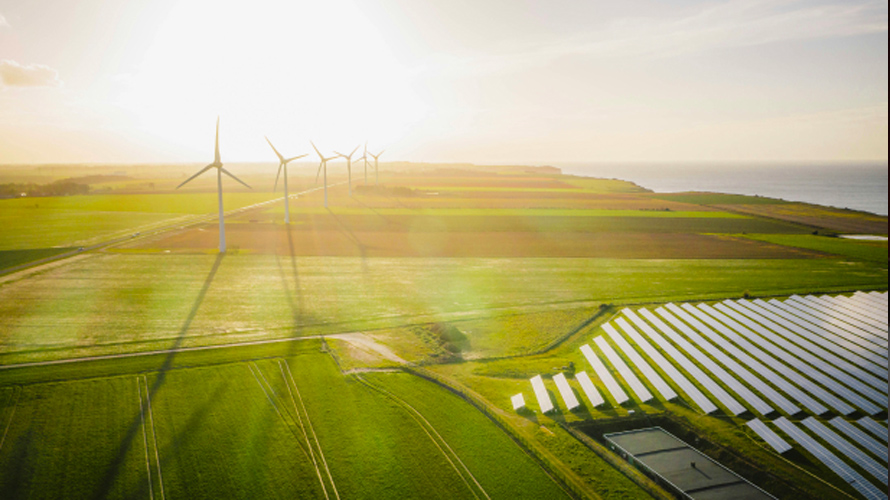
Qualifying Round
60 teams will be selected from all applicants, with 10 teams chosen for each challenge. Selection will be based on the project concept and video clip submitted by each team.
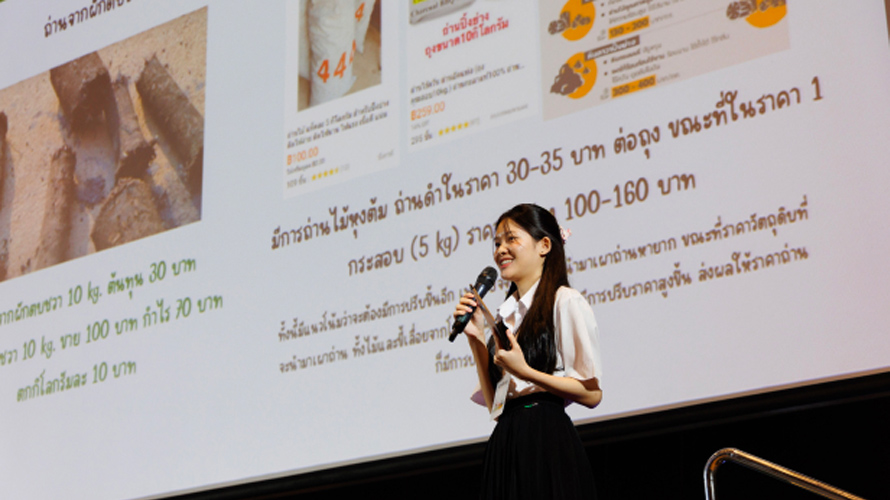
Semi-Final Round
3 teams will be selected from each challenge, totaling 18 teams, to advance to the final round. Teams will present their work to the judges for 10 minutes followed by a 10-minute Q&A session.
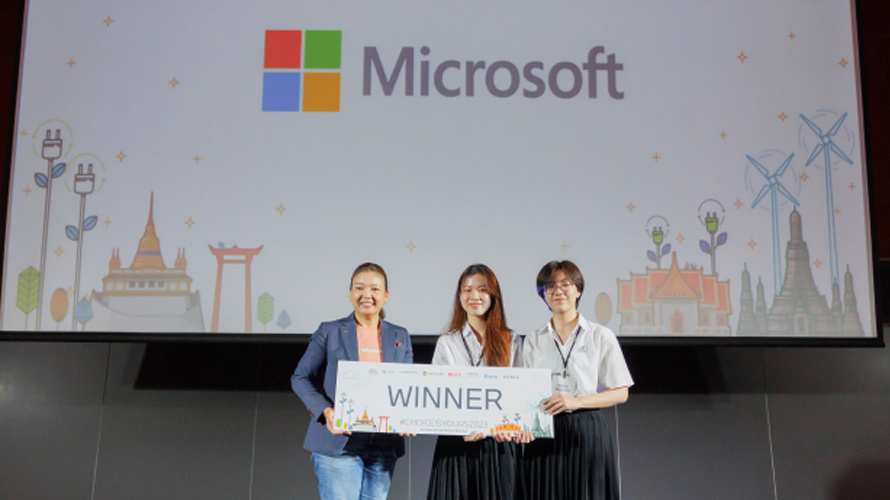
Final Round
The winning team from each challenge, a total of 1 team per challenge with the highest score, will be offered an internship with the partner organization. In the final round, teams will present their work to the judges for 5 minutes followed by a 10-minute Q&A session.
Judging Criteria.
The judging criteria for all 3 rounds of the competition will be based on the following 5 main criteria:
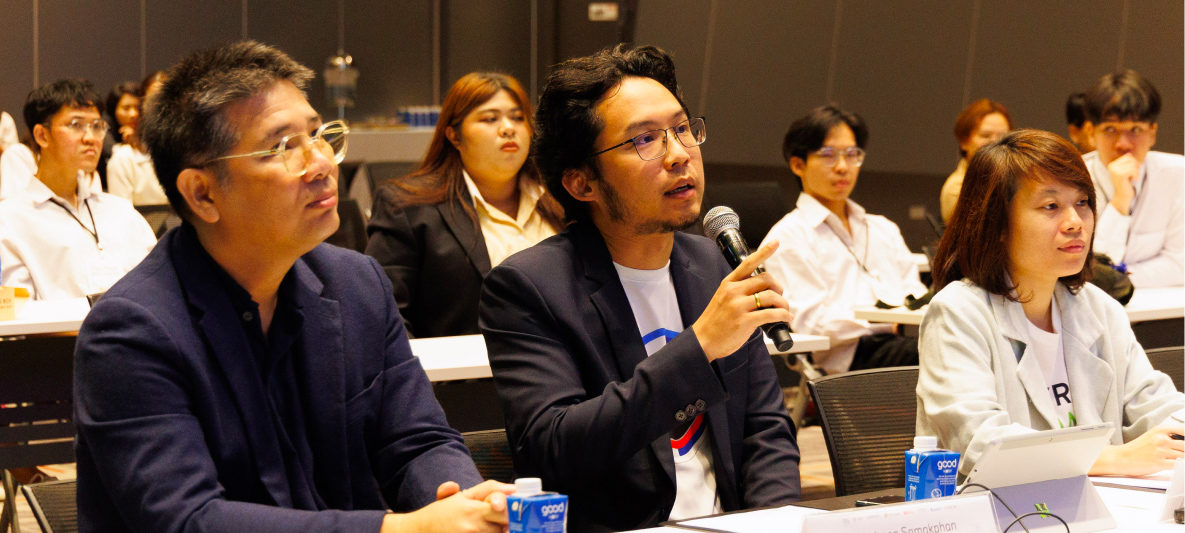
Prizes for the Competition.
The top-scoring team for each of the 6 challenges will receive the opportunity to intern with the respective partner organizations that provided the challenge. The partner organizations are:
BMW Group Thailand
Microsoft Thailand
SCG
Central Group and the Chaipattana Foundationntral
Noble Development
Bangchak Corporation
Additionally, all teams that pass the qualifying round and participate in the competition activities until the end of the competition will receive a certificate of participation from all 7 organizations.
Competition Schedule.
|
Details |
Schedule* |
|---|---|
|
Press Conference for CHOICEISYOURS 2024 and Opening of Applications |
6 June 2024 |
|
Announcement of Qualifying Teams |
26 July 2024 |
|
Orientation |
7 August 2024 |
|
|
August - November 2024 |
|
|
23-27 September 2024 |
|
|
12 November 2024 |
*The schedule for the competition is subject to change as deemed appropriate.
Conditions / Agreements.
- Teams must create original works that do not violate the rights or intellectual property of others. Teams must not present the works of others at any time during the competition. Any intellectual property of others used, including photos, content, articles, or research, proper and accurate citation must be included. Teams that violate the aforementioned will be held responsible for total damage, such as, third-party damage, fines, or any other expenses including fees and attorney fees.
- Teams must participate in scheduled activities.
- All works will be the intellectual property of the creator. Teams will allow the organizers the copyrights of all works created during the competition, including original files along with all other rights, to be used for publication in various media, such as press releases, articles, or other media for the purpose of education, research and development, and publicity.
- If any team is later found to be unqualified or the above conditions are not met, the organizers have the right to disqualify or revoke all decisions and recall all competition awards/certifications.
- Teams accept and agree that all decisions made by the judging committee are final, including all rules and conditions.
- All participating works created by the teams must be new and have never been used or won in any other competition.


